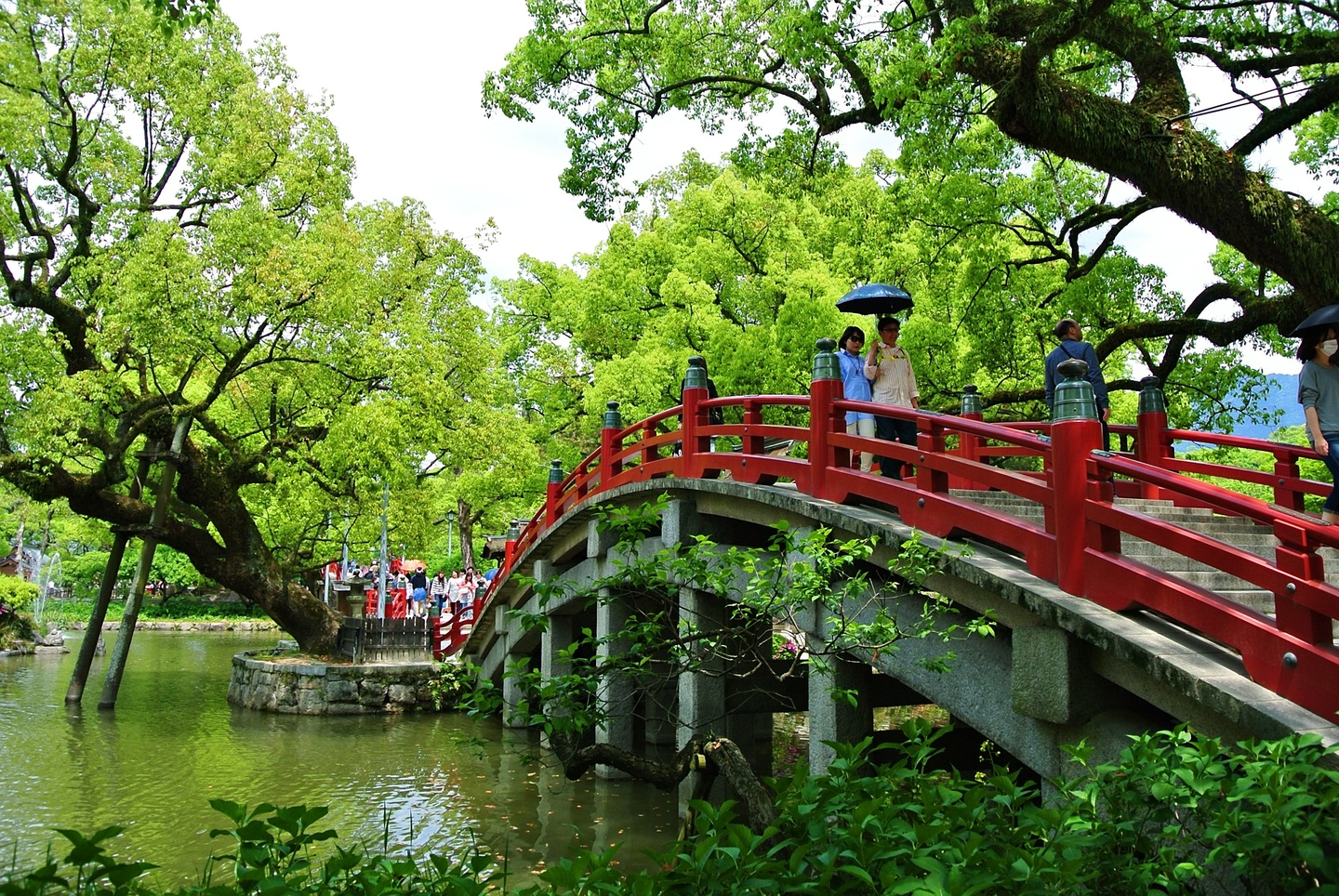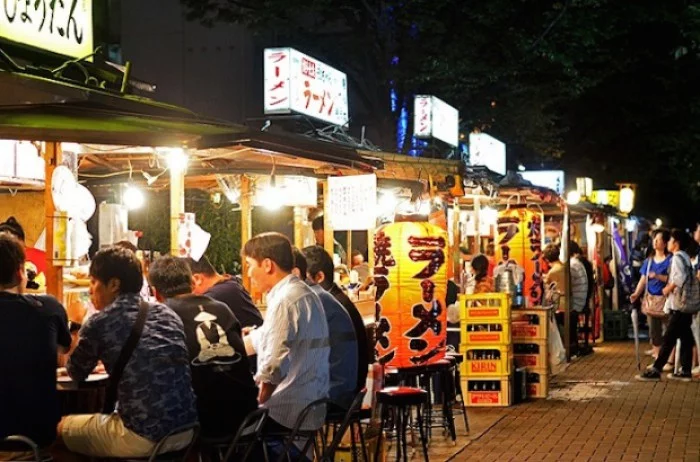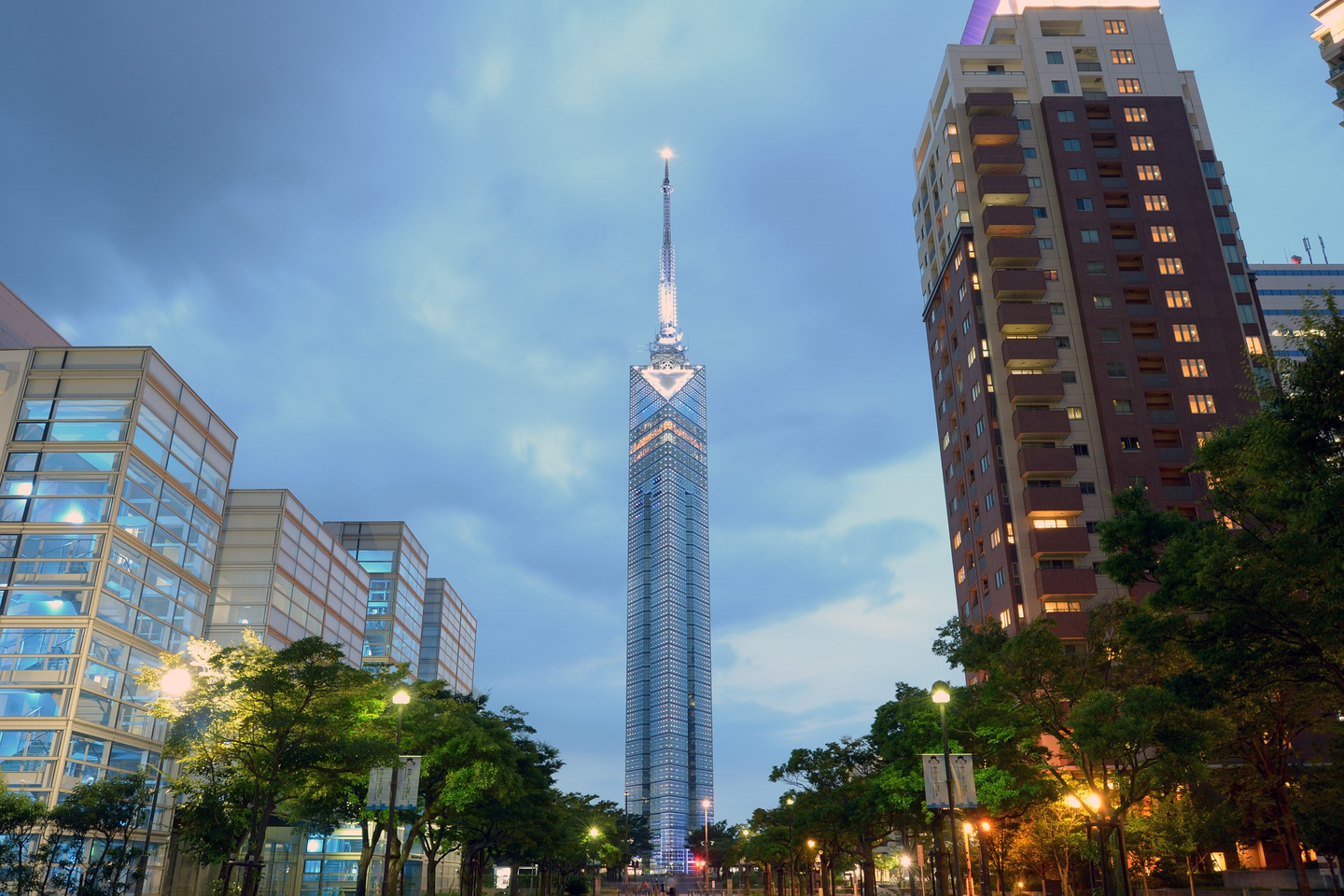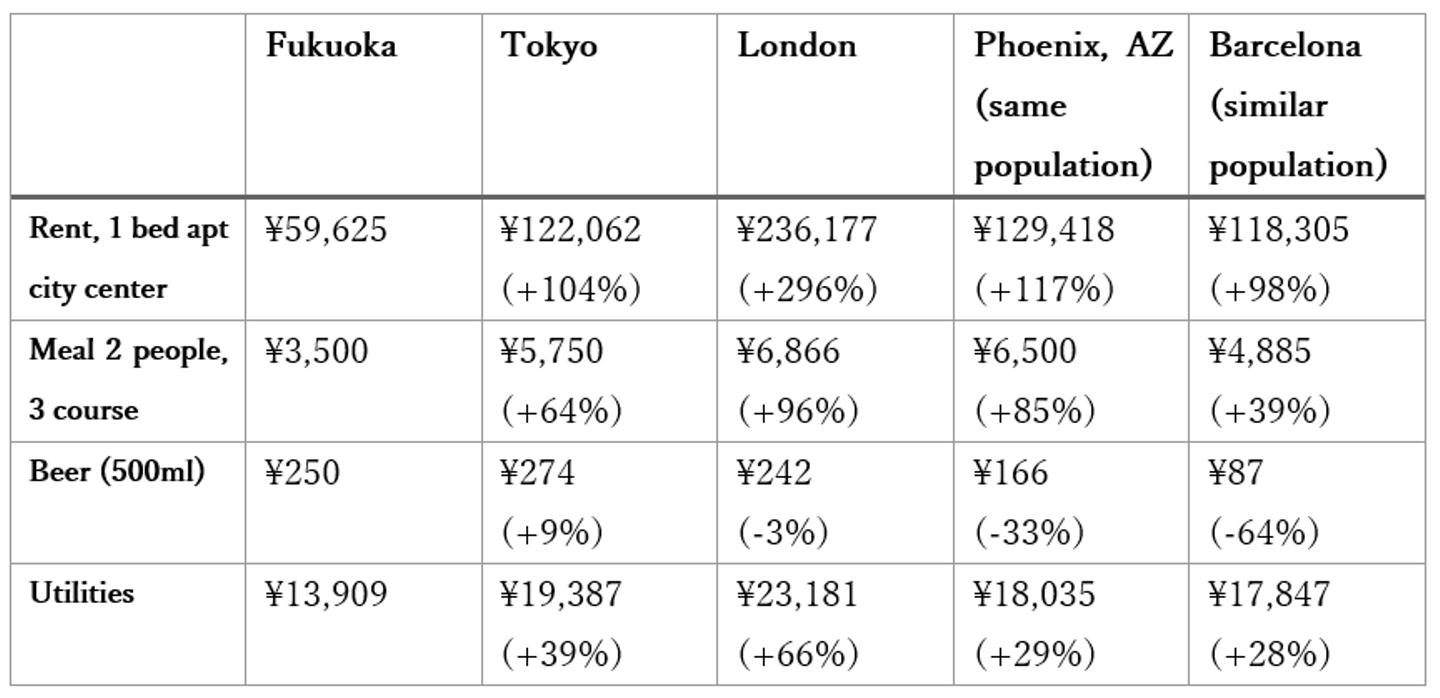Fukuoka city is located on the northern coast of Kyushu, the southernmost of the four main islands of Japan. With a population of around 1.5 million it is the 5th largest city in Japan. It is said that people from Fukuoka are fiercely proud of their hometown and looking at the below reasons it is easy to see why.

A view of a bridge at the historic Dazaifu Shrine
Gateway to Asia
Fukuoka’s location means it is the perfect gateway to Asia (actually it is closer to Seoul and Shanghai than it is to Tokyo!). The airport is conveniently located close to the city center meaning its super easy to take a weekend break in South Korea, China or one of the many other 11 Asian countries the airport serves.
Whilst Fukuoka has all the trappings and facilities of a major city it is surrounded by a wealth of natural habitats. After a week at work it is easy to unwind by swimming at one of 12 beaches (ranked no.1 in Japan for water quality), hiking to the top of near-by mountains for breath-taking views or take an hour’s drive to one of the top hot springs in all of Japan.
Finally a really important part about why Fukuoka is so easy to live in is the weather. With an average yearly temperature of 17C (63F) and max temperatures around the mid 30C’s (86F) Fukuoka came 3rd out of Asian cities for comfort level of climate.
Yatai – Historically Yummy
Kyushu is renowned for its food culture, fresh produce, plentiful seafood, top quality beef, pork and chicken but Fukuoka especially has some really great treats for gourmands.

Eat at a traditional yatai food stall
First let’s start with street food, Fukuoka is ranked as one of Asia’s top 10 street food cities (the only one chosen from Japan). What makes Fukuoka worth of this accolade? Well Fukuoka has a booming yatai (food cart) culture. These outside food stalls have their origins in the Edo period (1603 – 1868) and were a quick and cheap way for hungry workers to eat some tasty meals. Whilst yatai have disappeared from many cities in Japan, Fukuoka continues the tradition with yatai scattered throughout the city year-round. Traditional yatai foods include ramen (more on that in a minute), yakitori (BBQ chicken skewers) and oden (various ingredients boiled in a light soy-dashi broth) recently a French native has started his own yatai based on French cuisine.
Finally the real jewel in the gastronomical crown is Fukuoka’s very own tonkotsu ramen. Whilst the translated name of “pork bone ramen” might not sound appetizing trust us you are going to want to try this (especially after a few beers). The ramen soup has an almost milky appearance, this is due to it being crafted over hours (sometimes days) by boiling pork bones with other ingredients to create a deeply flavorful broth. Whilst it will win no awards from the healthy eating society it really is a guilty pleasure and one you can enjoy across Fukuoka, especially at the specially created Ramen Stadium which showcases top local shops.
On the Up
So the food is good and travel options are great but what does that matter if the long-term prospects aren’t there. Fukuoka is a rapidly growing city, it is ranked number one in Japan for population growth rate and is seeing 22% growth in young people (teen to 20s) the highest in Japan. For non-Japanese, Fukuoka is number one in terms of a growing foreigner population making it a diverse and vibrant city.
From an economic standpoint, investment in Fukuoka is at an all-time high and continuing to grow, the amount being spent on developing new buildings has grown by 49% since 2011. This along with the “Big Bang” project will increase total office space by 70% and the total number of employees by 240% resulting in 850 billion yen of economic benefits by 2025.

Fukuoka Tower
Live a Lot on a Little
Fukuoka is an extremely affordable city to live in with a quality of life on-par with much more expensive cities. Take a look at the following comparisons:

Source: Numbeo – Cost of Living
Not much more needs to be said really.
Hopefully after reading this you can see why Fukuoka is such a great place to live and work and why LINE has been able to attract a diverse workforce of both Japanese and non-Japanese.
If this has got you interested in living out here then check out the below links to find out how you can join us here at LINE Fukuoka.
/assets/images/14710241/original/3ace21ca-fb49-4a46-b5d1-11923ac7fa5d?1696213233)

/assets/images/14710241/original/3ace21ca-fb49-4a46-b5d1-11923ac7fa5d?1696213233)


/assets/images/14710241/original/3ace21ca-fb49-4a46-b5d1-11923ac7fa5d?1696213233)



/assets/images/3873709/original/9161a58b-c52e-421c-92b4-fd5c4103a626.png?1561622013)
